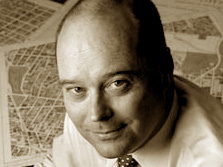 DR. WILLIAM DEVERELL
DR. WILLIAM DEVERELL
Lead History Consultant
William Deverell, a nationally recognized historian of the 19th and 20th century American West, is Professor of History at the University of Southern California, and Director of the Huntington-USC Institute on California and the West. A graduate of Stanford, with an M.A. and a Ph.D. from Princeton University, and a former faculty member at UCLA and the California Institute of Technology, he has published numerous books and papers on the history of California and the American West, including the widely acclaimed, Whitewashed Adobe: The Rise of Los Angeles and the Remaking of its Mexican Past, the landmark history book that forms the nucleus of content for this television series.
The following outstanding scholars were handpicked by Dr. Deverell and have all engaged in groundbreaking research and publishing on on diverse areas of Los Angeles, California and American History. They will continue throughout the production, post-production and outreach phases of the project as advisers and they will also bring their expertise directly to the viewer through insightful and context setting interviews on screen in Whitewashed Adobe: The Rise of Los Angeles.
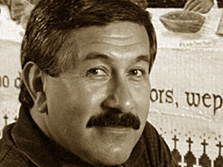 DR. AL CAMARILLO
DR. AL CAMARILLO
Haas Center for Public Service
Stanford University
Whitewashed Adobe: The Rise of Los Angeles is fortunate indeed to have Albert Camarillo, Ph.D., as one of its history advisors. Dr. Camarillo is Professor of History and Miriam and Peter Haas Centennial Professor in Public Service. Camarillo is widely recognized as the “Dean of Chicano Studies.” He brings his expertise in Mexican and Chicano history to Whitewashed Adobe’s episodes, linking the events and processes in Los Angeles to the wider California and national context. Al Camarillo was born and raised in the South Central Los Angeles community of Compton. After attending the Compton public schools, he entered UCLA as a freshman in 1966. He continued his education at UCLA in the Ph.D. program in U.S. History where he received his doctorate in 1975 and where his dissertation was nominated that year as one of the best Ph.D. theses in the nation in American history. Camarillo was appointed to the Faculty in the Department of History at Stanford University in 1975, a position he still holds. He has published seven books and over three dozen articles and essays dealing with the experiences of Mexican Americans and other racial and immigrant groups in American cities. Camarillo is widely regarded as one of the founding scholars of the field of Mexican American history and Chicano Studies. Two of his books, Chicanos in a Changing Society: From Mexican Pueblos to American Barrios and Chicanos in California: A History of Mexican Americans have been widely read and are required reading in most Chicano Studies programs across the nation. His most recent book, which compares the history of various major ethnic and racial minority groups in American cities, entitled Not White, Not Black: Mexicans and Racial/Ethnic Borderlands in American Cities, has been published by Oxford University Press. He is also the co-author of a textbook on California history that was published by Prentice Hall in 2007, and he is currently working on a book entitled Going Back to Compton: Reflections of a Native Son on Life in an Infamous American City. Over the course of his career, Camarillo has received many awards and fellowships. Awards for research and writing include a National Endowment for the Humanities Fellowship and a Rockefeller Foundation Fellowship; he was also a fellow at the Center for Advanced Study in the Behavioral Sciences and at the Stanford Humanities Center. His awards for teaching are also numerous. He is the only Faculty member in the history of Stanford University to receive the three highest awards for excellence in teaching and service to undergraduate education. At Stanford’s Commencement in 1988 and in 1994 respectively, he received the Lloyd W. Dinkelspiel Award for Outstanding Service to Undergraduate Education and the Walter J. Gores Award for Excellence in Teaching. In 1997, he was awarded the Bing Teaching Fellowship Award for Excellence and Innovation in Undergraduate Teaching. Most recently, Camarillo was awarded the Miriam Roland Prize for Volunteer Service for 2005, an award that recognizes a Stanford Faculty member who “over and above their normal academic duties engage and involve students in integrating academic scholarship with significant volunteer service to society.”
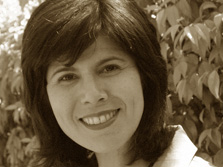 NATALIA MOLINA
NATALIA MOLINA
University of California, San Diego
Department of Ethnic Studies
Professor Molina brings to Whitewashed Adobe: The Rise of Los Angeles her groundbreaking scholarship and expertise on the history of public health in early Los Angeles, a history of great importance and longstanding impact upon ethnic Mexican people in Los Angeles. She provides insights that bring powerful authenticity and detail to some of the most compelling portions of Whitewashed Adobe’s episodes. Professor Molina has authored the fascinating and pioneering book, Fit to be Citizens: Public Health and Race in Los Angeles, 1879-1940, which explores the ways in which race is constructed relationally and regionally. In that work, she convincingly argues that race must be understood comparatively. Molina is an Associate Professor of Ethnic Studies and Urban Studies at the University of California at San Diego and also serves as Study Center Director for University of California Education Abroad Program in Granada and Córdoba, Spain. Her current book project, Racial Amnesia: The Search for a Usable Past, extends to the issue of immigration. Molina’s area of special investigation centers around how Americans from various regions and disparate backgrounds went about creating and understanding racial categories during a period of peak immigration in the early twentieth century. This research is particularly helpful in understanding ethnic interactions in the first century of Los Angeles as an American city. Growing up in East Los Angeles, with family members still living there, Molina deeply understands the impact on Los Angeles ethnic communities and its residents of ethnic perceptions held by various ethnic groups, particularly of a dominant ethnic group upon others.
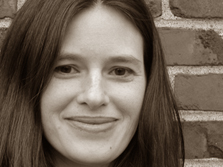 PHOEBE KROPP
PHOEBE KROPP
University of Colorado, Boulder
Department of History
Professor Kropp is an expert on the topics of cultural appropriation and public memory in California. She is the author of California Vieja: Culture and Memory in a Modern American Place (2006) which brings new perspectives to Southern California landscapes and the ethnic relations they represented and produced: Olvera Street in Los Angeles, El Camino Real, the history of the movement to preserve the California missions, and other iconic uses of Spanish “Fantasy Past” imagery, including the popular Spanish Colonial Revival architecture. Her original research has contributed much important detail and perspectives to the content of the episodes of Whitewashed Adobe. A native of Los Angeles, Ms. Kropp is an Assistant Professor in the Department of History at the University of Colorado, Boulder and is affiliated faculty of the Center for the American West. She teaches and studies cultural and environmental history of the modern United States and the American West. She received an A.B. in History from Bryn Mawr College and completed her Ph.D. (1999) in History at the University of California, San Diego. She is currently working on a book, tentatively titled Rough Comfort: The Public Culture of Camping in America, which explores the evolving practices of sleeping outside and meanings and politics of nature in the nineteenth and twentieth centuries. She received the Oscar Handlin Fellowship of the American Council for Learned Societies for 2009-10 and has previously been a fellow at the Henry E. Huntington Library, the Smithsonian Institution, the Penn Humanities Forum, and the University of California Humanities Research Institute.
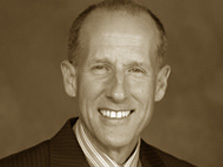 GREG HISE
GREG HISE
University of Nevada, Las Vegas
Department of History
Professor Hise is the co-author of three books with Dr. William Deverell: Land of Sunshine: An Environmental History of Metropolitan Los Angeles; Eden by Design: The 1930 Olmsted-Bartholomew Plan for the Los Angeles Region; and the upcoming A Companion to Los Angeles History. Professor Hise is Professor of History at the University of Nevada, Las Vegas. Hise’s contributions to this television project focuses on the economic and spatial growth of Los Angeles during the decades of Los Angeles’ rapid physical expansion in the latter part of the nineteenth and early twentieth centuries. He brings a powerfully analytical mind and highly articulate expression of his ideas and knowledge to Whitewashed Adobe, to better understand the national and local factors that drove economic growth of Los Angeles, and the progressive conceptual tides – such as the City Beautiful and Garden City movements – that shaped Los Angeles’ city leaders’ determination to make Los Angeles a kind of Eden of future-oriented urban planning. His insights into how these visions and policies led to dislocations and restrictions of minority communities in Los Angeles bring to Whitewashed Adobe’s episodes a sharply etched examination of the shadow sides of Los Angeles’ pioneering and progressive city plans, zoning and regulations, and of its self- generated and deceptive sunny and optimistic civic branding. Professor Hise has served as Co-Principal Investigator on the JR Haynes and Dora Haynes Foundation funded projects “A New History of Los Angeles” and “Industrial Los Angeles: Social-Science Informed Photographic Documentation.” Professor Hise currently serves on the Board of Managing Editors for the publication American Quarterly.
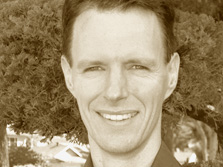 MARK WILD
MARK WILD
California State University Los Angeles
Department of History
Professor Wild is an expert on the industrial history of Los Angeles, early twentieth century Los Angeles progressives, as well as on the multiplicity of ethnic immigrant communities in the central neighborhoods of Los Angeles from 1850 until 1950. Wild brings those vital perspectives to the episodes of Whitewashed Adobe, as well as his expertise on the tremendous impact of the coming of the railroads to Los Angeles. He elucidates how this fueled a long boom and bust cycle of real estate and industrial investment in Los Angeles, along with bringing trainloads of visitors and settlers to the city. Professor Wild offers valuable and richly detailed perspectives on how the railroads, along with other city boosters, hit on the use of iconic imagery to successfully sell Southern California, and in particular Los Angeles, to the nation and world. Dr. Wild currently serves as Associate Professor of History at California State University, Los Angeles. He is author of the intriguing and deeply researched book, Street Meeting: Multiethnic Neighborhoods in Early Twentieth Century Los Angeles, and is co-author with Dr. William Deverell of Going Against the Grain: Multiracism and the Fate of the Social Gospel in 1920s Los Angeles. He served as a Co-Director of the Huntington Library Los Angeles History Seminar from 2004 until 2006. He also served as Principal Investigator for the “Cultures of Engagement in an Era of Displacement,” program funded by National Endowment for the Humanities, 2007.
